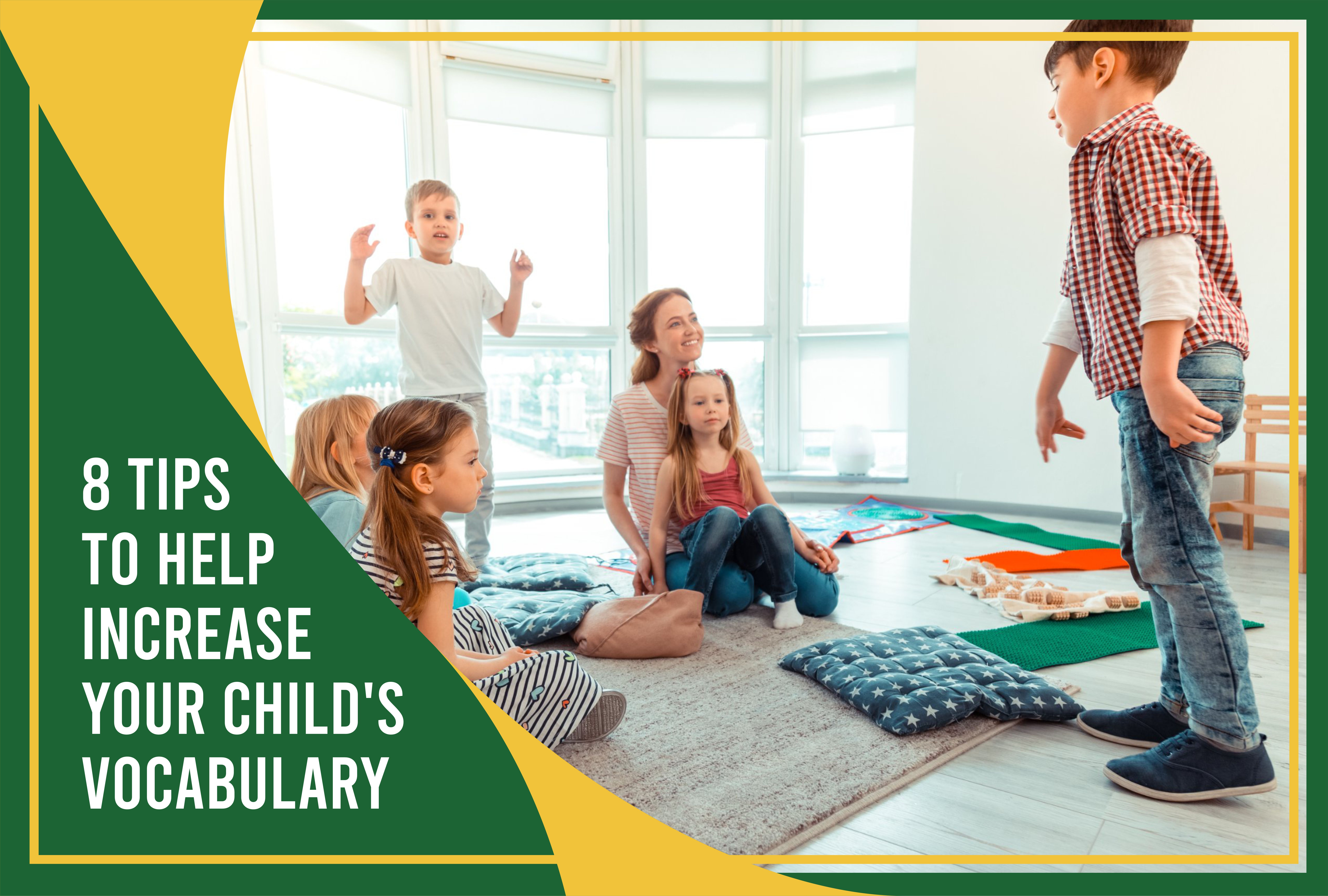8 Tips to Help Increase your Child's Vocabulary
Having a rich vocabulary can be fundamentally beneficial for children. It can help them express themselves more effectively, understand new concepts more easily, and communicate better with others. Additionally, having a strong vocabulary can improve reading comprehension and writing abilities. Studies have shown that children with larger vocabularies tend to score higher on standardized tests and perform better in school overall.
As a parent, you play an important role in increasing your child's vocabulary. Here are eight tips to help you get started:
Read aloud to your child every day
A child's vocabulary grows exponentially during the first few years of life, as they learn to associate words with objects and experiences. One of the best ways to promote vocabulary development is to read aloud to your child on a daily basis. Reading exposes them to a wide range of words. It also helps build their understanding of how words are used in context.
A recent study found that children who are read to daily have a larger vocabulary than those who are not. Furthermore, the study found that the size of a child’s vocabulary is a predictor of their later reading ability. Reading aloud to your child every day can help them to develop the skills they need to be successful readers.
Introduce new words in everyday conversation
You can help increase your child's vocabulary by introducing new words into everyday conversation. When you come across a word that is new to you, take the time to explain its meaning. You can also ask your child if they know what the word means. This type of interaction will help them to learn how to use new words properly.
Encourage your child to ask questions
When children are curious and ask questions, it shows that they are engaged in their surroundings and are trying to make sense of the world around them. Asking questions is also how children learn new information and expand their vocabularies.
Encourage your child to ask questions by modeling inquisitive behavior yourself. When you are reading together, stop occasionally to ask your child what they think will happen next in the story. You can also ask them questions about the pictures in the book.
Play word games together
Word games are a fun and effective way to help children learn new words. They also help develop important language skills, such as listening, thinking, and problem-solving. There are many different types of word games that you can play with your child. Try some of these:
-
I Spy: Look for objects around the house or while you are out and about and take turns guessing what each object is.
-
Scrabble Jr.: This is a simplified version of the classic board game Scrabble that is geared towards younger children. Players take turns making words with the letter tiles.
-
Word Ladder: This game is played with two players. One player starts by saying a word, and the other player then has to say a word that is one letter different from the first word. For example, if the first player says “cat”, the second player could say “bat”. The game continues until one player is unable to think of a new word.
Provide opportunities for your child to write
Writing is an important way for children to learn how to use and understand words. It also helps them develop their own unique writing style. There are many different ways that you can provide opportunities for your child to write. Here are a few ideas:
-
Give them a journal: invite your child to write about their day, their thoughts, or anything they feel like sharing.
-
Write letters together: write a letter to a friend or family member and ask your child to help you with the writing.
-
Make signs: create signs around the house or for special occasions.
Encourage your child to tell stories
Telling stories is a great way for children to practice using words and sentence structure. It also helps them develop their imagination and creativity. When your child is telling a story, listen attentively and ask questions. This will help engage them in the storytelling process and encourage them to continue using their imagination.
Help them understand how words are used
It is important for children to understand how words are used in order to use them correctly. When you are reading together, point out how the characters in the story are using words and how the meaning of the words changes depending on how they are used. For example, the word “run” can be a verb (to move quickly on foot) or a noun (a race).
Encourage reading materials other than books
Books are not the only source of words. There are many other types of reading materials that can also help children learn new words. Some examples include magazines, comics, posters, labels, instructions, and a multitude of other places. Let your child learn new words from something as simple as a box of cereal by reading the ingredients, or how many grams are in one serving. Try to help them understand how these words are used in everyday life.
Following these tips can help your child develop their vocabulary and improve their language skills. With your support, your child will be well on their way to expanding their vocabulary!
At Mrs. Myers’ Learning Lab, we specialize in fun, interactive classes for developing readers. Our engaging process leads to students gaining self-confidence, interpersonal skills, and a love for learning that extends far beyond the classroom. Visit our website to learn more!





